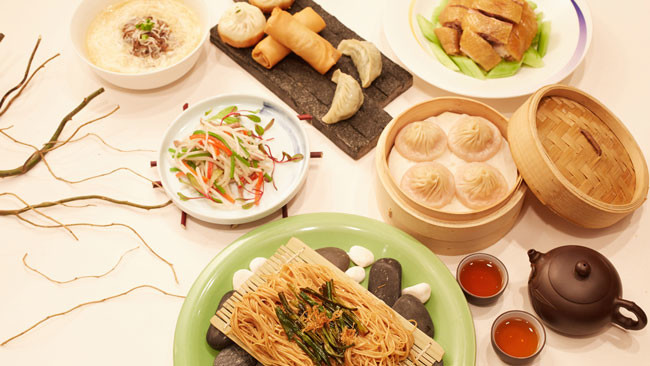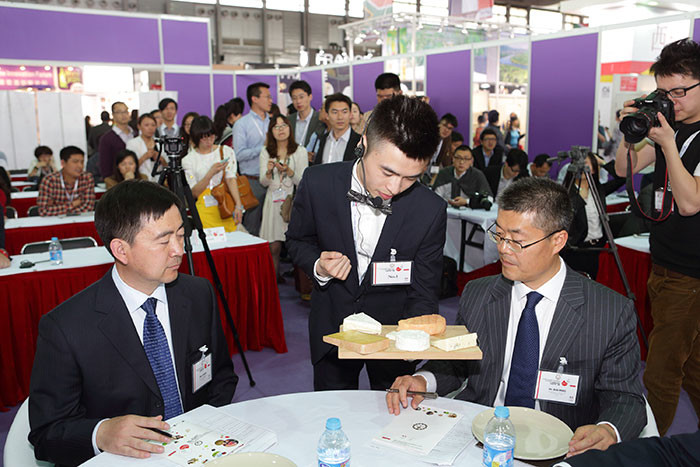Demei's View - Wine Communication from a Chinese Winemaker

© Skyline of Gobi Vineyard Photography Club
I just came back from a memorable trip – the members of the Skyline of Gobi Vineyard Photography Club and I went to Muztag Ata* on the Pamir Mountains. Of course, we did not prepare to get to the top of the mountain. We reached 4,800 metres above the sea level and had a short outdoor party; we achieved our dream of touching the glacier with our own hands and enjoyed wines of the Skyline of Gobi Vineyard that we brought to the journey and chilled in the glacial erosion lake.
I love photography because of wine – I visit wine regions frequently and always revel in their beautiful scenery. I want to keep the memory with photos and share them with more people. Since I brought my DSLR Camera, I was on a one-way journey of taking more and more pictures and continuously upgrading my equipment. Although I am not a professional photographer, the scenery in my photos is rarely seen, so I received encouragement from different people, and even advice on how to improve my skills. These made my wine trip more interesting. The investors of the Skyline of Gobi Vineyard are also photography fans, and they have a group of friends with sophisticated photo shooting skills. Therefore, from the very beginning when they planned the winery, there was an idea of organising a Photography Club at the winery as a communication platform for photography lovers. There is even a series of wines at the winery using the photography works of the club members for wine label design. Xinjiang has vast territory and abundant resources, as well as unique landscape, so it is a popular destination for the photography fans. Combining photography with wine promotion is a very good idea.

Our trip included two parts: Muztag Ata Plateau and Bayanbulak Grassland. Three members needed to go back home after the first half of the trip, so we organised a farewell lunch in Kashgar. Wines were indispensable at this kind of occasion. Considering the local religious custom, we chose a restaurant running by the Han nationality and serving Sichuan cuisine. What impressed me wasn’t their genuine food, but the decanter and proper wine glasses the waiter brought to us! We were prepared to use beer glasses for the wines and we had corkscrews with us, but apparently they were not needed. The decanter was brought out from a refrigerator. We ordered more food after seeing that, because we didn’t pay for using the decanter and glasses, but there were operating costs for them.
Obviously, as tourists we were moved by what the restaurant owner did.
During the lunch, I was thinking: why is it so difficult to promote wine consumption in Chinese restaurants? Why don’t the restaurant managers want to take the initiative to promote the wines?
For years, wine distributors would buy out the rights of managing the beverage in the Chinese restaurants with good business performance – the distributor paid the restaurant a sum of money in advance to monopolise its beverage business, so the distributor could be the exclusive beverage supplier to that restaurant.
The restaurant was happy to receive the money before any operation, so it didn’t care about how much the wines on its wine list were sold; therefore the price could be abnormally high, and it was the consumers who eventually had to pay for it. Moreover, the restaurant would forbid the consumers from bringing their own wines as a reward to the upfront fee the distributor paid. In the face of such unfair business conditions, some consumers would choose not to order any drinks or symbolically order a litter in the restaurant. Other courageous consumers were not satisfied with this, so they came up and fought for their right, which led to a new rule by local trade regulators that enabled people to bring their own wines. But this brought unfairness as well: restaurants are premises, and operating cost occur even if the consumers bring their own beverage. However, consumers do not pay for this cost.
Neither the restaurant owner nor the consumers want to sacrifice their rights, thus wine consumption are like the best game no one played in the restaurants in China.

Kashgar is a famous cultural tourism destination and welcomes many foreign visitors. But the restaurants serving special local food have an absolute advantage. Other cuisines need to find their own selling point if they want to take a place in the market. That is the reason for this restaurant preparing a professional decanter and wine glasses in order to attract the customers who would like to drink wine.
The prices of dishes served in Chinese restaurants normally do not include service charge, so people may feel that Chinese restaurants are cheaper than the western-style restaurants at the same level.
Either consumers or the wine distributors will have to pay for the service, so the restaurant will be willing to provide professional service, and then the consumers can enjoy the wines rather than suffer from it – drinking wine at wrong temperature is definitely a suffering. We are all born with the ability to realise uncomfortable feelings. No one will want to spend money for suffering – it is much better to pay for good service.
*Muztag Ata is a mountain that sits on the border of the Akto County and the Tashkurgan Tajik Autonomous County in the Xinjiang Uyghur Autonomous Region with the height of 7,509 metres. It is at the western edge of Tarim Basin and southeast of the eastern Pamir Mountains, and the latitude 38°00′-38°40′N and the longitude is 74°40′-75°40′E. The thickness of the ice layer at the top of the mountain is 100-120 metres. The mountain is known as ‘the father of ice mountain’. In the Uyghur language, muz means ice, tag means mountain, and ata means father, thus Muztag Ata literally means ‘ice mountain father’.
Translated by Nina Fan Feng / 冯帆
All rights reserved by Future plc. No part of this publication may be reproduced, distributed or transmitted in any form or by any means without the prior written permission of Decanter.
Only Official Media Partners (see About us) of DecanterChina.com may republish part of the content from the site without prior permission under strict Terms & Conditions. Contact china@decanter.com to learn about how to become an Official Media Partner of DecanterChina.com.








Comments
Submit